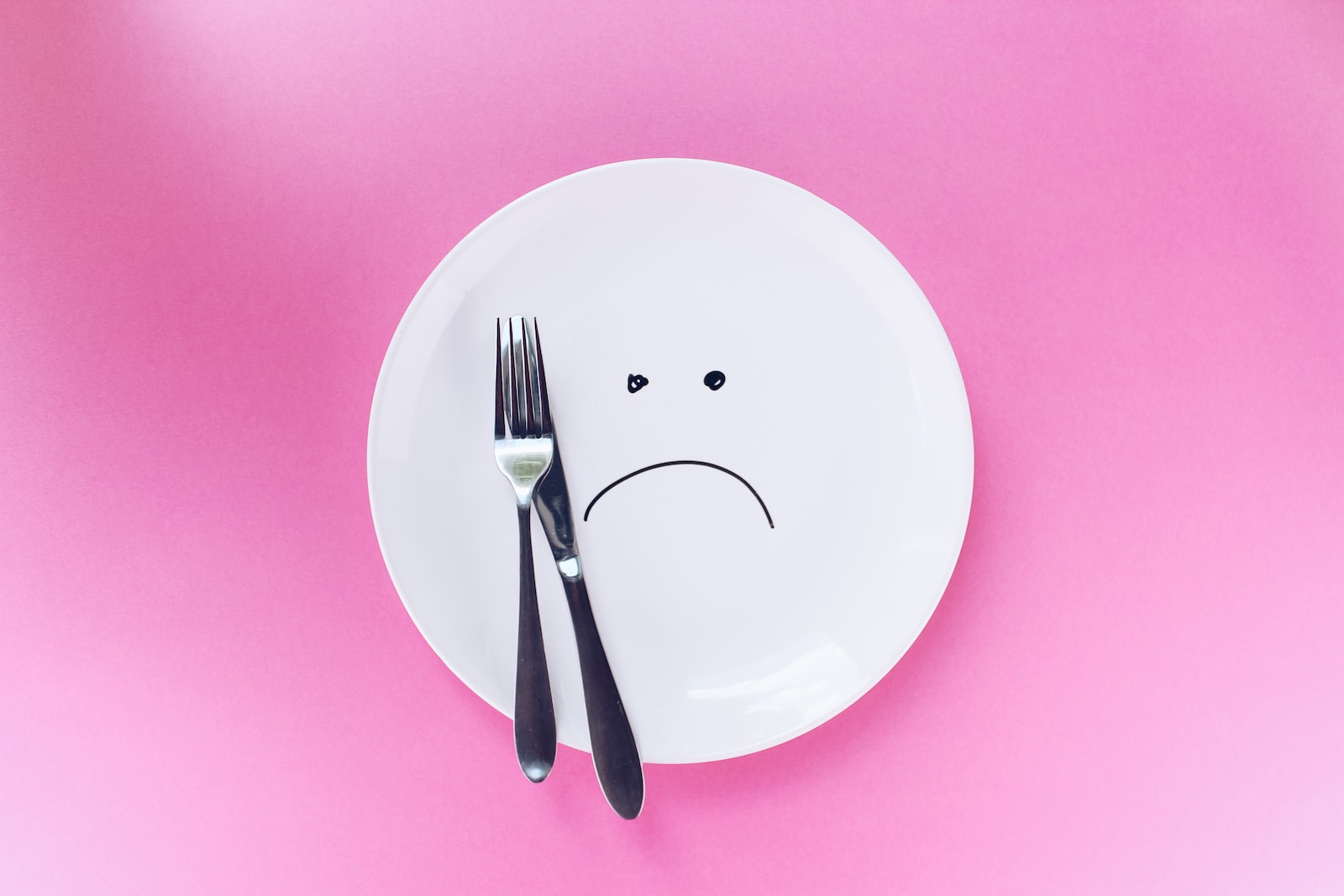Low-fat diets have been popular for decades, with many people believing that cutting back on fat is the key to weight loss and better health. However, recent research has shown that low-fat diets may not be as effective as once thought. In a previous blog we wrote about Stress and Weight Gain Demystified: 3 Effective Ways to Handle It. In this blog post, you will discover the truth about low-fat diets and why they don’t work for everyone.
What are low-fat diets?
 Low-fat diets are diets that restrict the intake of fat.
Low-fat diets are diets that restrict the intake of fat.
They were first popularized in the 1970s and 1980s as a way to reduce the risk of heart disease.
The idea behind low-fat diets is that by cutting back on fat, you will reduce your calorie intake, leading to weight loss.
However, over the years, the popularity of low-fat diets has waned, with many people now turning to other types of diets, such as low carb or ketogenic diets.
The truth about low-fat diets
 Many people still believe that they are the key to weight loss and better health.
Many people still believe that they are the key to weight loss and better health.
However, recent research has shown that low-fat diets may not be as effective as once thought, and in some cases, they can even be harmful to your health.
1. Low-fat diets can lead to nutrient deficiencies
 low-fat diets have been a popular choice for weight loss for decades.
low-fat diets have been a popular choice for weight loss for decades.
However, many people fail to realize that the removal of fats from the diet can lead to nutrient deficiencies.
Essential nutrients, such as vitamins A, D, E, and K, are often found in high-fat foods and are necessary for optimal health.
Furthermore,low-fat diets can deprive the body of essential fatty acids that cannot be produced by the body, such as omega-3 and omega-6 fatty acids.
These fatty acids are crucial for maintaining healthy skin, hair, and nails, as well as reducing inflammation and promoting heart health.
Examples of nutrient deficiencies that can result from a low-fat diet include dry skin, brittle nails, hair loss, night blindness, and impaired wound healing.
To avoid nutrient deficiencies, it is essential to incorporate healthy fats into your diet, such as avocados, nuts, seeds, olive oil, and fatty fish.
2. Low-fat diets can lead to increased sugar and carbohydrate intake
 When people switch to low-fat diets, they often compensate for the lack of flavor by adding sugar and carbohydrates to their meals.
When people switch to low-fat diets, they often compensate for the lack of flavor by adding sugar and carbohydrates to their meals.
High sugar and carbohydrate intake can lead to several health problems, including obesity, insulin resistance, and type 2 diabetes.
Carbohydrates are necessary for energy, but not all carbs are created equal.
Refined carbohydrates found in processed foods, such as white bread, pasta, and sugary drinks, are quickly broken down into glucose, leading to a spike in blood sugar levels.
This spike is usually followed by a crash, leading to feelings of hunger and cravings for more sugar and carbs.
A low-fat diet can cause an increase in sugar and carbohydrate intake, as people often consume more carbohydrates to feel full.
Instead of eliminating fats, it is better to opt for healthy fats, such as those found in nuts, seeds, and fatty fish, and to choose complex carbohydrates, such as whole grains, fruits, and vegetables.
3. Low-fat diets can lead to increased hunger and overeating
 Fats are more satiating than carbohydrates, which means they keep us feeling full for longer periods.
Fats are more satiating than carbohydrates, which means they keep us feeling full for longer periods.
When people follow low-fat diets, they often experience increased hunger and cravings, leading to overeating and weight gain.
Hunger and satiety are regulated by hormones, including leptin and ghrelin. Leptin is released after a meal, signaling to the brain that the body is full and reducing hunger.
Ghrelin, on the other hand, increases hunger levels. low-fat diets can reduce leptin levels and increase ghrelin levels, leading to increased hunger.
Moreover, low-fat diets can lead to overeating and binge eating, as people try to compensate for their feelings of hunger.
Instead of following a low-fat diet, it is better to incorporate healthy fats into your meals, such as those found in avocados, nuts, and olive oil, to keep you feeling full and satisfied.
4. Low fat diets can be difficult to sustain long-term
 While low-fat diets may offer some benefits in the short term, they can be difficult to sustain over time.
While low-fat diets may offer some benefits in the short term, they can be difficult to sustain over time.
This is partly due to the fact that many low-fat foods are not as satisfying as their full-fat counterparts, which can lead to increased cravings and overeating.
Additionally, many people find it challenging to stick to a low-fat diet in social situations or when eating out.
The impact of unsustainable diets on health should not be overlooked.
Yo-yo dieting, or repeatedly losing and gaining weight, has been linked to a number of negative health outcomes, including an increased risk of heart disease and metabolic disorders.
To maintain a healthy diet long-term, it’s important to find a way of eating that is sustainable and enjoyable.
This might mean experimenting with different types of diets, such as the Mediterranean diet or a plant-based diet, to find what works best for you.
It may also be helpful to work with a registered dietitian who can provide personalized guidance and support.
5. Low-fat diets may not be effective for weight loss
 One of the primary reasons that people turn to low-fat diets is for weight loss.
One of the primary reasons that people turn to low-fat diets is for weight loss.
While it’s true that reducing overall calorie intake can lead to weight loss, research suggests that low-fat diets may not be the most effective way to achieve this goal.
The relationship between low-fat diets and weight loss is complex, and many factors come into play.
For example, some studies have found that low-fat diets can lead to greater weight loss than low-carbohydrate diets, while others have found the opposite.
Additionally, individual factors such as metabolic rate, genetics, and lifestyle habits can all impact weight loss.
Ultimately, the most effective way to achieve and maintain a healthy weight is to adopt a balanced, nutritious diet and engage in regular physical activity.
This may or may not include a low-fat diet, depending on individual needs and preferences.
Conclusion
In conclusion, while low-fat diets may seem like a simple solution for improving health and achieving weight loss, they are not without their drawbacks.
Five reasons why low-fat diets don’t work include the potential for nutrient deficiencies, increased sugar and carbohydrate intake, increased hunger and overeating, difficulty in sustaining the diet long-term, and potential ineffectiveness for weight loss.
However, it’s important to note that every individual is different, and what works for one person may not work for another.
Rather than following a one-size-fits-all approach, it’s important to focus on building a healthy, balanced diet that meets individual needs and preferences.
This might mean incorporating a variety of healthy fats, such as those found in nuts, seeds, and fatty fish, as well as plenty of fruits, vegetables, whole grains, and lean protein sources.
Ultimately, the key to success is finding a way of eating that is sustainable, enjoyable, and promotes overall health and well-being. By focusing on a nutrient-dense, balanced diet and engaging in regular physical activity, individuals can achieve their health goals and live their best lives.
Are you tired of trying countless low-fat diets that just don't seem to work?
We understand your frustration, and it's time to explore a revolutionary solution that can truly transform your weight loss journey. Introducing the PrimaJust weight loss method—the solution you've been searching for!
This revolutionary approach doesn't rely on restrictive diets or grueling exercise routines.
Instead, it unlocks the true potential of your metabolism for all-natural weight loss.
Imagine effortlessly shedding 1-3 pounds per week without having to resort to extreme measures.
Say goodbye to the disappointment of failed diet attempts and embrace a proven method that delivers results.
Don't miss this opportunity to take control of your weight and transform your life.
Download our still free report now and discover the all-natural weight loss method!
[Source]Free Report
Drop a comment below if you’re interested in learning more about effortless weight loss.
Unleash your potential with these empowering related blog posts
-
Fat Shaming: Harmful Effects of Shame and Fallacies
In today's society, fat-shaming is a prevalent issue that affects millions of people worldwide. Fat-shaming…












